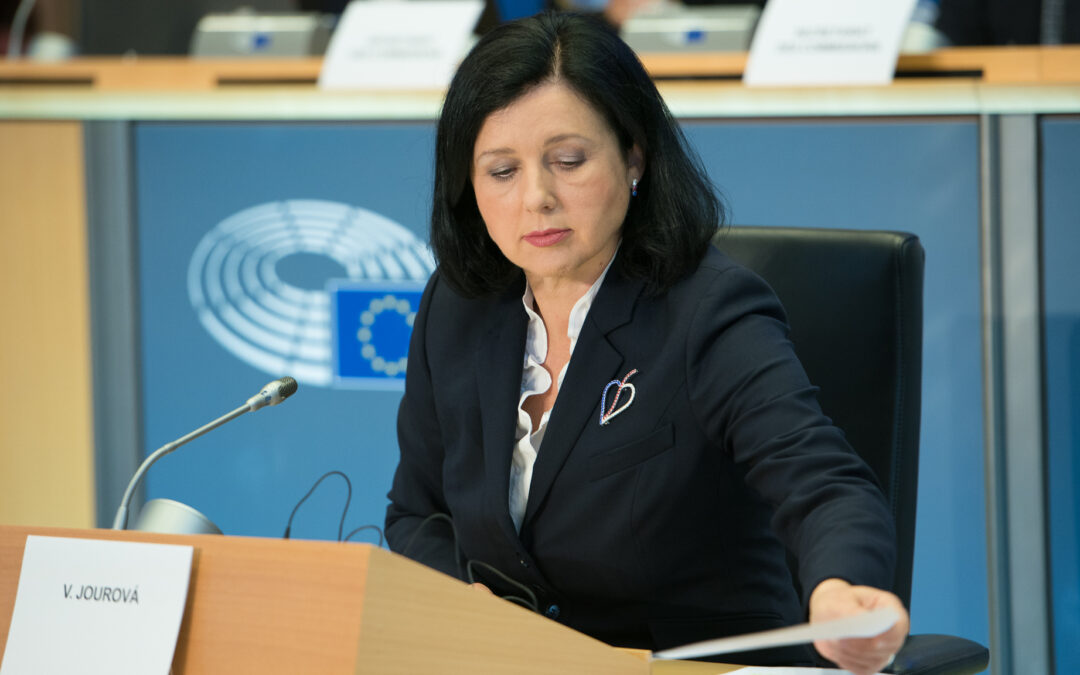After the European Commission moved to suspend billions of euros in EU funds for Hungary, a vice-president said that they also see “many problems” in Poland and are “analysing” further steps towards the country. Poland’s prime minister, meanwhile, has pledged that his government will “strongly oppose” penalising Hungary.
At a meeting yesterday morning, commissioners recommended suspending €7.5 billion of Hungary’s funds. It is the first time they have called for use of the so-called “conditionality mechanism“, introduced in 2020, which ties the disbursement of the EU budget to rule-of-law standards.
The European Commission proposed suspending €7.5 billion of funds allocated to #Hungary over rule-of-law concerns, but…also laid the ground for a possible compromise that would allow PM Orbán to keep the money. https://t.co/lDodxd02CD
— Saskia Dekkers (@saskiadekkers) September 18, 2022
The decision now passes to the EU’s individual member states, with the approval of a qualified majority among them required in order to implement the cut to Hungary’s funds. Budapest can also prevent that from happening by meeting 17 commitments it has agreed with the commission.
After Sunday’s announcement, Polish Prime MInister Mateusz Morawiecki said it is “obvious” that “Poland will strongly oppose any actions of European institutions that intend to illegally deprive any member states of funds, in this case Hungary”, reports the Polish Press Agency (PAP).
Janusz Kowalski, a deputy minister in the Polish government, warned in a tweet that, after Hungary, Poland could be the next target for “the illegal deprivation of funds” as “eurocrats break the spines of sovereign states that say NO to the federalisation of the EU”.
Dziś Węgry, jutro Polska. Bezprawne pozbawienie Węgier unijnych funduszy to koniec UE jaką znamy. Być może w ogóle koniec UE.I to w tej dekadzie. Skompromitowani realizacją polityki Merkel i Putina eurokraci łamią kręgosłupy suwerennym państwom, które mowią NIE federalizacji UE.
— Janusz Kowalski 🇵🇱 (@JKowalski_posel) September 18, 2022
In an interview with Polish broadcaster Polsat, European Commission vice-president Věra Jourová was asked if her institution would target Poland with similar action to Hungary.
“We are analysing the situation in other countries, including Poland, but in order to launch a procedure like today against Hungary, in the case of Poland we did not have sufficient evidence of corruption, conflict of interest and this type of fraud, and this is the main goal of these [conditionality] rules,” she said.
“The purpose of the conditionality mechanism is to protect EU money from abuses, therefore it was not used against Poland,” Jourová continued. “But we have many, many other problems in Poland that we must try to solve with the help of other tools.”
Węgry odcięte od unijnych pieniędzy. Jourova dla Polsat News: Analizujemy sytuację w Polscehttps://t.co/iVMeKpPICl
— Józef Stępak (@JozefStepak) September 18, 2022
Warsaw has in recent months been locked in a struggle with Brussels over the release of around €36 billion from the EU’s post-pandemic recovery fund, which the European Commission has frozen due to concerns over the rule of law in Poland.
That process, however, is separate from the conditionality mechanism being used to potentially block funds for Hungary from the main EU budget. But like Hungary, Poland has agreed a series of “milestones” with Brussels to unlock its funds.
The Polish government claims that it has been implementing those measures, including by abolishing its disciplinary chamber for judges. But Commission President Ursula von der Leyen says that the actions taken so far are not sufficient to address the EU’s concerns.
Main image credit: © European Union 2019 – Source: EP (under CC-BY-4.0)

Daniel Tilles is editor-in-chief of Notes from Poland. He has written on Polish affairs for a wide range of publications, including Foreign Policy, POLITICO Europe, EUobserver and Dziennik Gazeta Prawna.



















